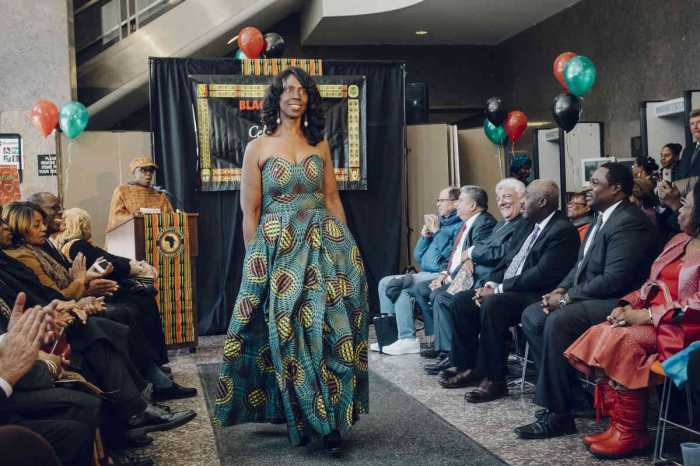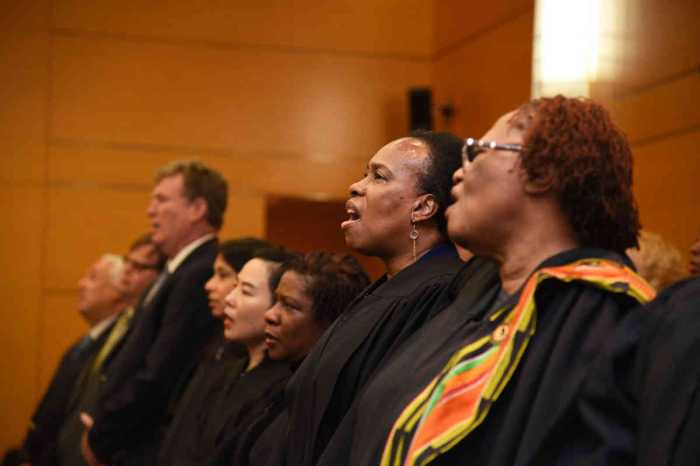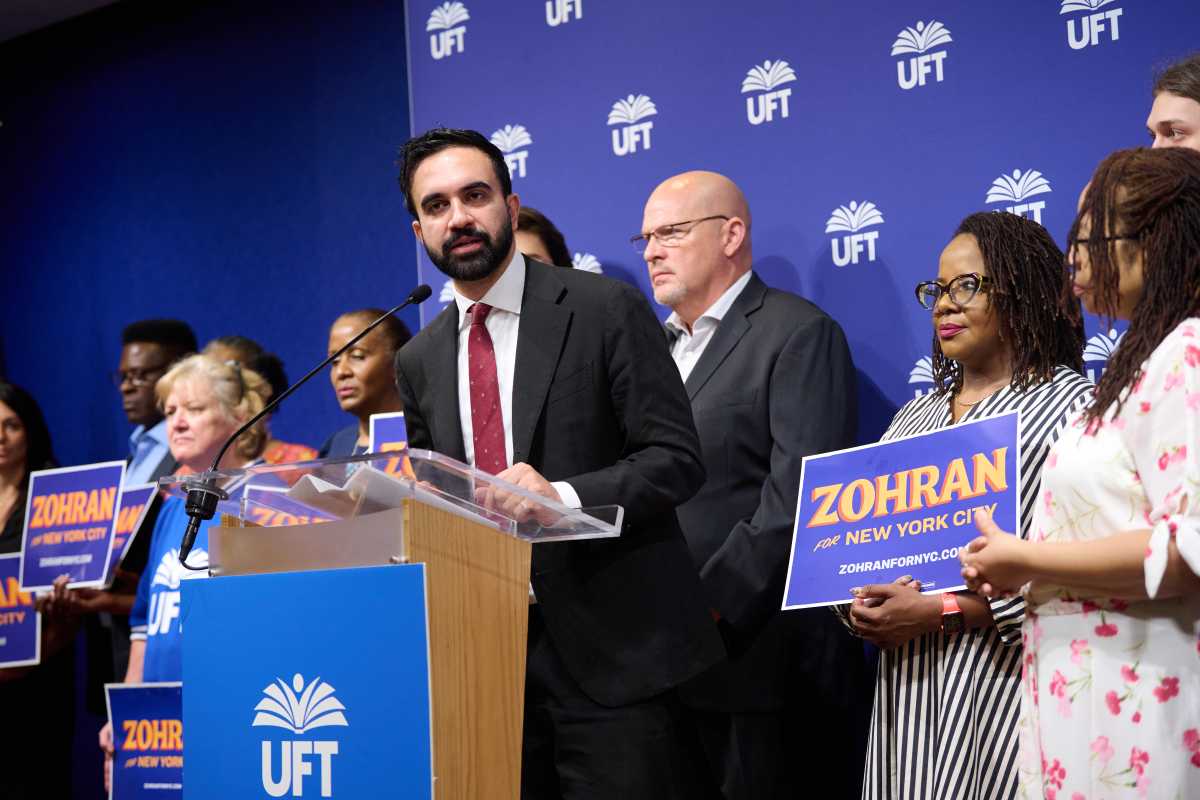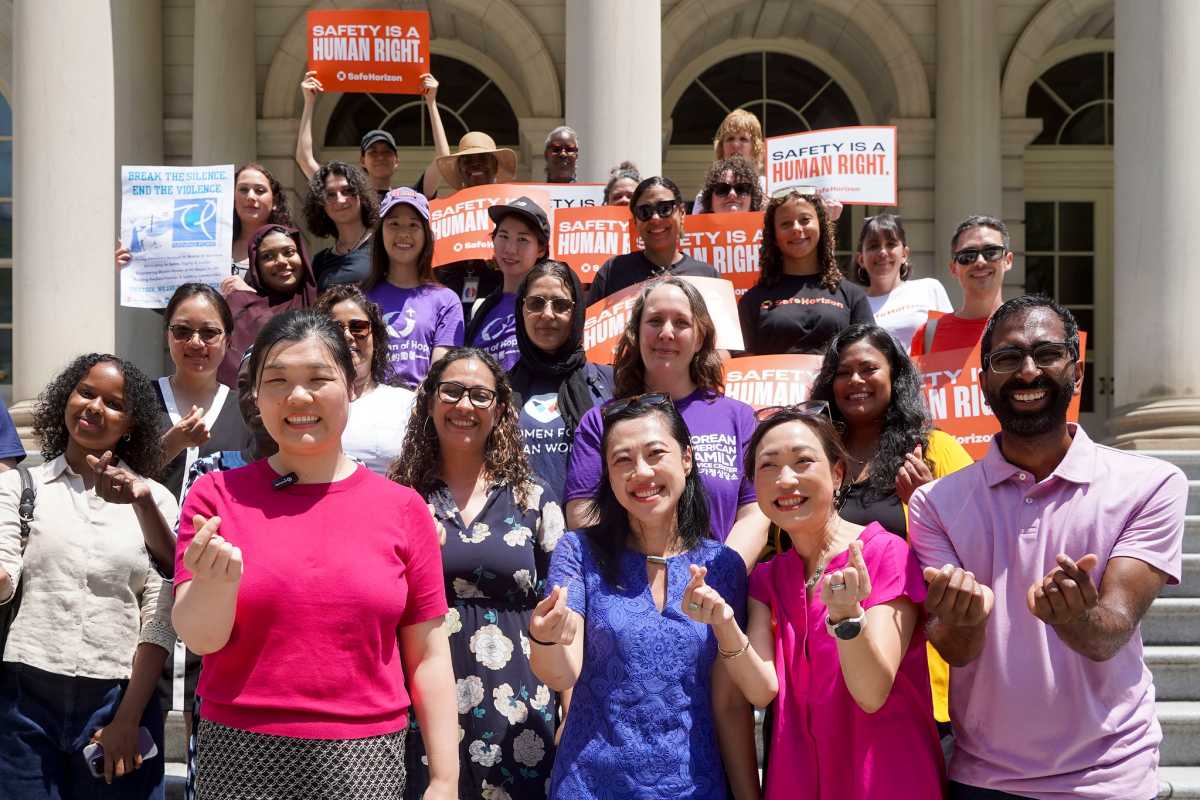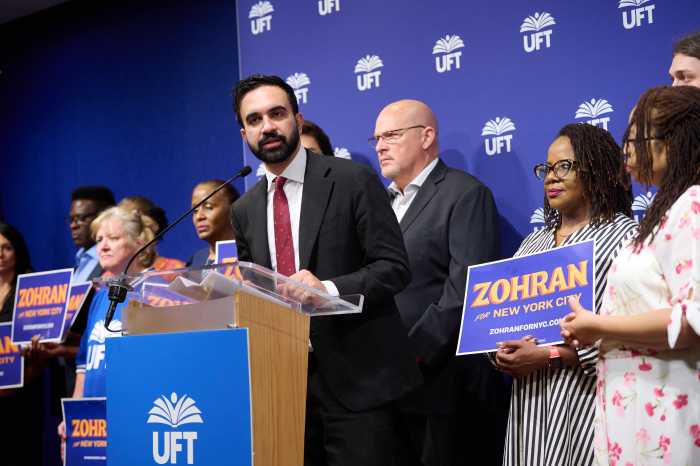One local Brooklyn beauty supply shop is getting a major boost with the help of Grammy award-winning musical artist Ciara.
The R&B singer worked with the tech behemoth Meta, the parent company of Facebook, to nominate 10 Black-owned small businesses across the country as part of a new program to deliver mentorship and advertising help — and For Our Daughters Beauty, a year-old northern Brooklyn-based company, was among the 10 lucky winners.
As part of the program, the company will receive one-on-one, six-week mentorship training from a business professional, as well as $100,000 in ad credits to be used on Meta platforms (which includes Facebook, Instagram, and more).
For Our Daughters Beauty supplies hair and beauty products, including make-up and nail polish, catered to a variety of skin and hair types. Tiara Robertson and Leticia Randle, longtime friends and the co-owners of the business, said the idea was born out of unmet beauty supply needs in minority communities.
“It was something that we knew was missing,” Robertson said. “The local beauty supply store just doesn’t cater to our needs the way we feel it should for the amount of money that you end up spending by mistake.”
While Robertson lives in Brooklyn and Randle lives in Staten Island, they both went through “the exact same thing,” when shopping for beauty supplies — often facing indifference and ignorance from those hawking the goods. With that in mind, the pair sought to create a space where the person behind the counter wrestled with the same questions they did, and more importantly, cared about finding answers.
Robertson, who is Black, and is the mother of a Black child, said there’s a stigma today on Black women’s natural hair, which should not be the case.
“I just want to go to work,” Robertson said. “[Or] I just want to send my daughter to school with her hair the way it grows out of her head without her teacher making comments.”
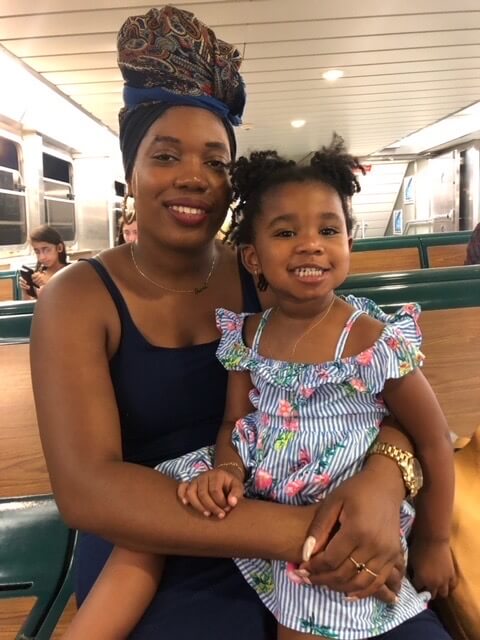
One customer, 23-year-old Shaquoya Pollock, is all too familiar with Robertson’s situation.
Pollock, who has been buying from For Our Daughters Beauty for the last year, put her hair through the ringer as a child. Growing up, Pollock went to the salon every two weeks, perming and straightening her hair until it fell out.
“I hated my hair growing up, I absolutely hated it,” Pollock told Brooklyn Paper. “I wanted to cut it off and just wear wigs all the time.”
In middle school, classmates teased Pollock, calling her “the girl with the bad hair.” In the classroom was no better. Pollock remembers having a friend with long, tight curly hair. Teachers with a “straighter hair texture” would tell her she needed to braid it, because “it was a distraction to people.”
“She took a lot of offense to that,” Pollock said. “Because it’s her hair. Like what can I really do about this, it grows like that?”
To make matters worse, Black men and women often have a more difficult time managing their hair, Pollock said, noting that a friend of hers with twins has to schedule her day around braiding one daughter’s hair in the morning, and the other in the evening.
Robertson and the team at For Our Daughters Beauty helped Pollock find a hair product that makes the getting-ready process a bit easier — and a little more rewarding.
“I think the name [For Our Daughters] is very appropriate,” Pollock said. “It is curated for us, for our daughters, because…they only support businesses whose products are good for their daughter’s hair, and they want to share this beauty that they’ve found in the community.”
But the inescapable beauty and frustration of Black people’s hair is that “there is no one type,” and therefore “no one product that fits all.”
Randle has an eight-year-old daughter, named Helena. Before starting For Our Daughters, Randle struggled to find beauty suppliers that had products for both her hair and her child.
“What we aim to do is create a space where a mom of loose curly hair could buy for herself and for her daughter, who has, I don’t-know-what type of curly hair,” she said.
Rather than promising guaranteed satisfaction every time a customer buys a product, Randle works for constant “open dialogue.” Believing that a good business must both have quality product and intimate customer service, Randle encourages customers to always ask questions, respond when something worked, or even reach out when it didn’t.
“I hate to buy something and then I feel guilty about it,” Randle said. “[Instead] you want some comfort in knowing that the person that is selling you something cares.”
For Our Daughters strives to be unique in that it is a “one-stop-shop” for Black parents with children who have all different textured hair, and to be proud of that.
Above all, Randle and Robertson want For Our Daughters to inspire their own daughters, Helena and Navy, to both set goals and see them through, while feeling they can wear their hair “unapologetically.”
“The idea of owning something is powerful,” Randle said. “To see mommy be able to put her hand on different things and see it come to life, I think it’s awesome for little kids to see their parents do that, and we in turn want to see them do that.”
Tyshana Sims, a 35-year-old mother of two teen girls, who has been a customer with For Our Daughters since they started up, and who is a longtime friend of Randle’s, said her acquaintance has hit on a winning formula, as countless Black women face similar struggles in the beauty industry.
“She said that she had something in the making,” Sims said. “And you know, my friend’s a boss. When she said it was going to be hair products, I was like ‘oh, I’m sold.’”
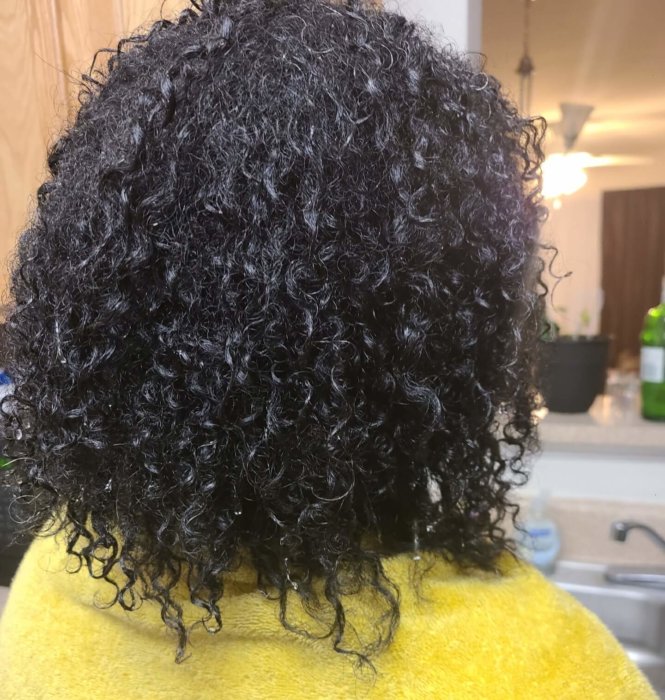
With the stress of the pandemic, the last two years Sims has fought heavy hair loss. Beyond her own battles with hair, finding hair products for her family was difficult, as she and her two daughters have very different hair textures.
Sims first purchased Flora and Curl from For Our Daughters to see how it would help her curl pattern. While it was not effective on her hair, it was very effective on both her daughters’ hair, she said.
She now buys Ecoslay Peppermint Schnapps and Hot Sauce for herself, then Flora and Curl for her daughters. The new products have helped her hair loss significantly, she said.
“Your hair is part of [self-care] and you have to take care of it,” Sims said. “And I had to learn that.”
With the personal and business successes Robertson and Randle have shared, they look forward to the growth yet to come through the Meta grant.
“It’s going to be a lot of work, because we’re just starting out,” Robertson said. “So, to have someone come in that is an expert in their field and basically point out all the things that we may have been doing wrong, is going to be eye opening. But it’s a welcomed push.”



